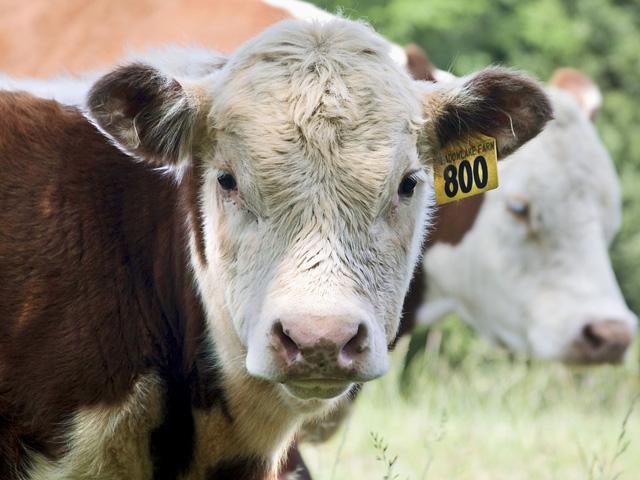Custom Pinkeye Treatments
Adjuvant Treats Pinkeye in One Dose
Pinkeye can be a challenge to control in any cattle operation, especially where a two-dose regime is called for. A one-dose adjuvant is now available that may help lighten the workload when pinkeye hits.
Veterinarian Matt Christjohn works primarily with cow-calf and stocker operations in Alabama and Georgia. He often recommended custom-made vaccines for pinkeye and explained to producers that this approach required two doses -- the initial administration and a booster several weeks later. Labor costs and logistical challenges, however, sometimes meant that the second dose was missed, which compromised the vaccine's overall effectiveness.
P[L1] D[0x0] M[300x250] OOP[F] ADUNIT[] T[]
Cattle producer Erin Duke, at Stockdale Farm in Munford, Alabama, saw how bad pinkeye could hit an operation in 2017. That was the first serious outbreak of pinkeye, with 75% of the 400-head herd infected. At that time, Christjohn said a custom vaccine was Duke's best course of treatment.
"Dr. Christjohn recommended running diagnostics, and we discovered a custom-made vaccine was needed to protect against the prevalent pathogens within our herd," said Duke. The only way to achieve that was with a two-dose vaccine.
"It took nearly two full days to get all 400 cattle in and out of the chute for the initial vaccine administration. It took another two days for the second dose," recalled Duke. "Overall, this process was very challenging, but the unbeatable results made custom-made vaccines a necessity in our pinkeye prevention plan."
Christjohn reported that in the case of Duke's herd, that initial vaccine administration dropped the pinkeye rate from 75% to 30%. The follow-up booster shot brought the rate below 2%. Great results, but lots of work.
In 2019, Bio One, a one-dose adjuvant to treat pinkeye, became available, and Christjohn used it in Duke's herd. The cattle producer said it helped reduce time, labor and expense and also lowered handling stress on the cattle. After switching to the one-dose protocol, Duke reported there had not been the need to treat cattle a second time for pinkeye-related issues.
How does it work? Bio One allows the immune response to last longer, eliminating the need for that second dose, explained Randy Shirbroun, veterinarian and director of the ruminant business unit for Newport Laboratories.
"We've heard from our customers that administering a second dose of a vaccine is time-consuming and costly, so we're excited that Bio One will remove that extra step," added Shirbroun.
Killed vaccines, explained the veterinarian, contain antigens and adjuvants. Antigens are viruses or bacteria that can no longer cause disease, but they can prime the immune system to work, signaling a foreign invader is present. The adjuvant's job is to amplify that alarm, making the immune system even better at fending off the invader. Custom-made vaccines give producers and their veterinarians the option to select an adjuvant that best fits their particular herd's health challenges.
(c) Copyright 2021 DTN, LLC. All rights reserved.






